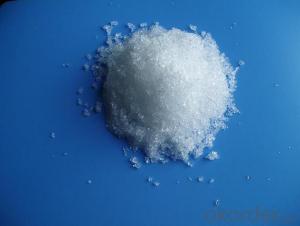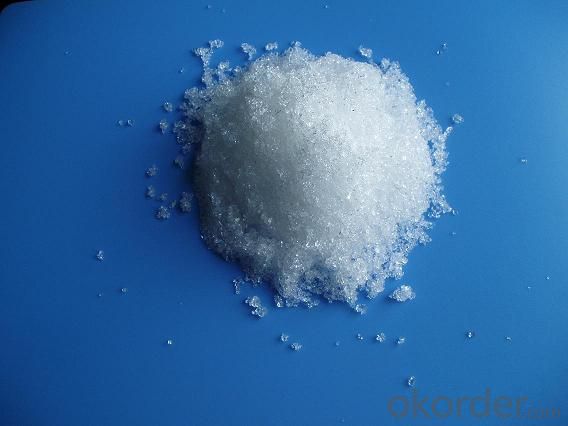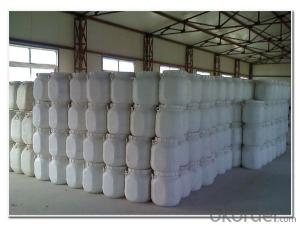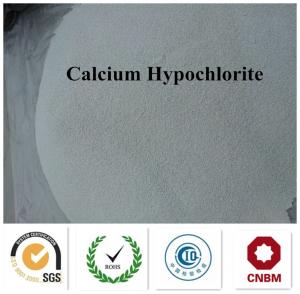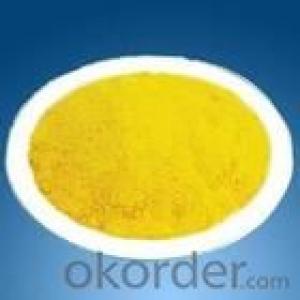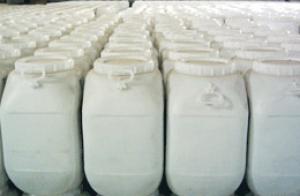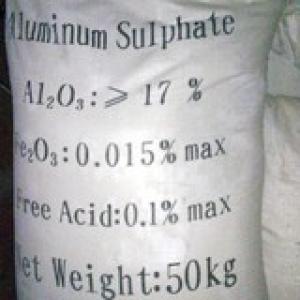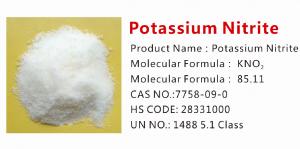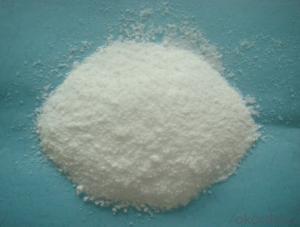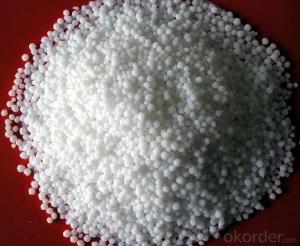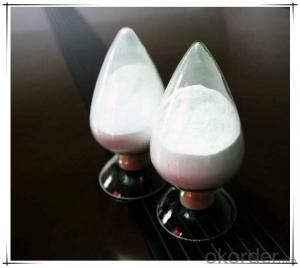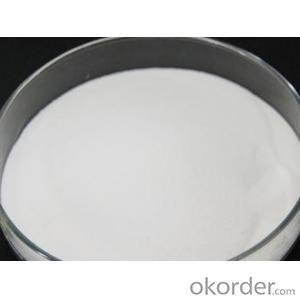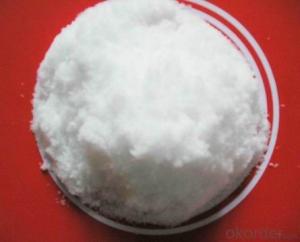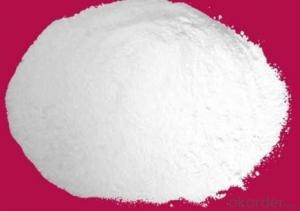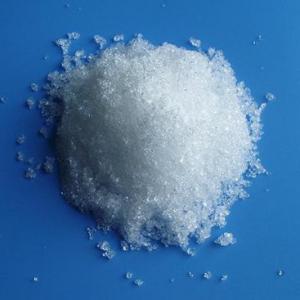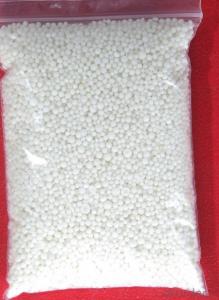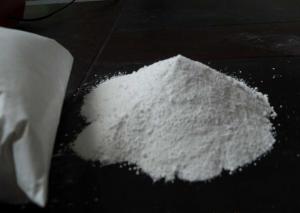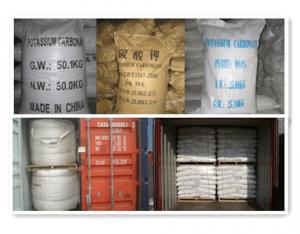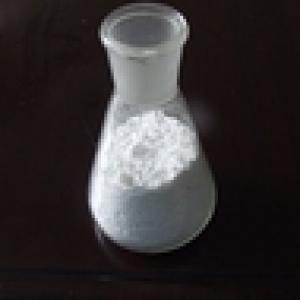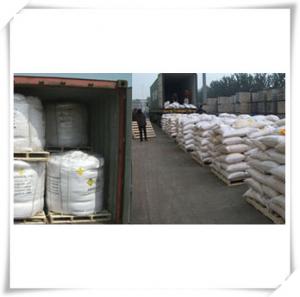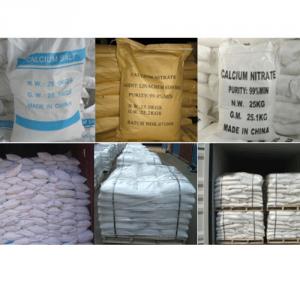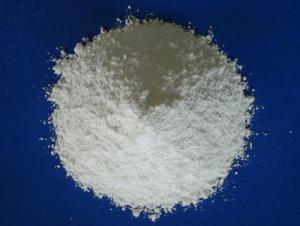Calcium nitrite inorganic salt
- Loading Port:
- China Main Port
- Payment Terms:
- TT OR LC
- Min Order Qty:
- -
- Supply Capability:
- -
OKorder Service Pledge
OKorder Financial Service
You Might Also Like
Calcium nitrite
Molecular formula: Ca(NO2)2
Molecular weight: 132
Properties: White powder without crystal water. This product is hygroscopic,odorless, well soluble in
water ang generate light yellow solution, toxic.
Technical standard: Q142401/CSC-01-2000
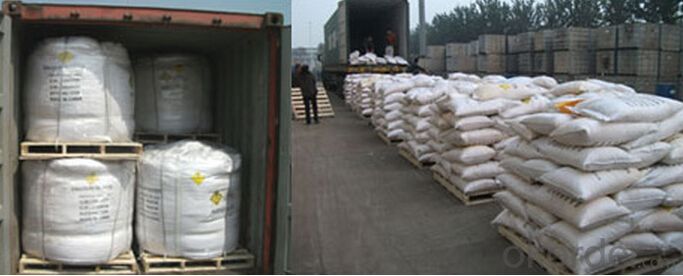
Indicator item | Superior | First grade | Second grade |
Calcium nitrite[Ca(NO2)2 dry basis]% | ≥94 | ≥92 | ≥90 |
Calcium nitrate[Ca(NO2)2 dry basis]% | <4 | <5 | <6 |
Calcium hydroxide[Ca(NO2)2 dry basis]% | <1.0 | <1.0 | <1.0 |
Moisture % | <1.0 | <1.0 | <1.0 |
Water insoluble content % | <0.6 | <1.0 | <1.0 |
Use: This product is mainly used as main raw material of cementconcrete admixture and can be
prepared to concrete antifreeze, rebar corrosioninhibitor, early strength agent, etc. This product can
also be used in heavyoil washing, lubricating oil emulsification, chemical organic synthesis andother
fields.
1. Antifreeze: Can reduce the freezing point of themixing concrete. Construction temperature can be
down to -25 °C. Negativetemperature can promote the hydration of mineral components in cement. It is a new generation of low-alkali chlorine-free antifreeze.
2. Rebar corrosion inhibitor: It has excellentpassivation, rust resistance and protection effects.
Adding 2-3% calciumnitrite can prolong the life of buildings and structures for 20-50 years.
3. Can prepare early strength agent to improve concretestrength, reduce cement consumption and
shorten construction period.
This product fundamentally overcomes the defects ofconcrete alkali aggregate reaction and
electrochemical corrosion, improves thephysical and mechanical properties and durability of concrete
to get highquality concrete.
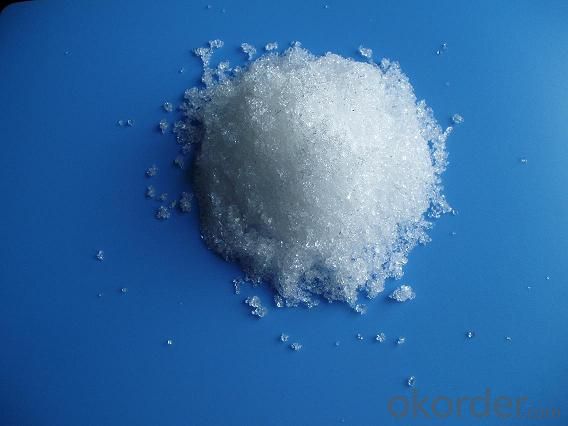
Packing: 25/40kg woven bag lined with plastic or according tocustomer requirements.
- Q: Are fruits and vegetables inactive?
- Inorganic salts are inorganic compounds in the salt, formerly known as minerals, the body has found more than 20 species, including constant elements of iron, zinc, selenium, molybdenum, chromium, cobalt, iodine 8. Apple, pipa, durian, citrus, Watermelon, kumquat, peanuts, I know so much. Oh, there are: lotus lotus which contain inorganic salts
- Q: What is the inorganic salt
- Inorganic salts are inorganic compounds in the salt, formerly known as minerals, the body has been found in more than 20 species, including constant elements of calcium, phosphorus, potassium, sulfur, sodium, chlorine, magnesium, trace elements are iron, zinc, , Chrome, cobalt, iodine, etc. If you pay attention to diet diversification, eat less animal fat, eat brown rice, corn and other coarse grains, do not eat too much refined flour, the body can make the inorganic salt to maintain normal level.
- Q: are there any other foods than water and salt that have an abiotic origin (lifeless, inorganic)?
- Various minerals we need, like iron, zinc, magnesium, etc. That's it. These also are not technically foods, as the first poster said.
- Q: How to isolate the effects of inorganic salts on enzyme solubility
- The effect of inorganic salts on the solubility of the enzyme was studied. The inorganic raw materials were pretreated with inorganic salts to separate the solid-liquid phase, and some of the lignin and hemicellulose were dissolved, and the sulfuric acid and the inorganic salt were added to the cotton Treatment, thereby improving the enzymatic hydrolysis efficiency. Using different amounts of sulfuric acid
- Q: Which solvents have some solubility in inorganic salts
- A wide variety of dyes, dissolved complex. The original dyes are organic, but some salt, some metal complexes, some of the larger molecules of the fused ring compounds, some polymer heterocyclic compounds, in some common organic solvents in the solubility is better than disperse dyes Raw dyes and oil-soluble dyes (this is actually the raw material of solvent pigments, strictly speaking, not dyes). There are basically additives in the finished dyes, such as direct dyes, acid dyes, reactive dyes, cationic dyes and other water-soluble dyes will be added inorganic salts, disperse dyes, reducing dyes will be added sulfonate sodium dispersant. In addition, the dye and other chemical products, their purity requirements are generally very low, will allow the presence of certain insoluble impurities. So the organic solvent can not be completely dissolved dye products really is very common or even a normal phenomenon.
- Q: Cells are composed of water and inorganic salts or by organic matter and none
- Cells are composed of water and inorganic salts or b
- Q: I had asked a similar question on GC operation last week, but for different kinds of compounds.For my biochem research project at school, I&#39;m testing the ability of a species of bacteria to biodegrade alcohols found in gasoline (methanol, ethanol, isopropyl, tert-butyl and cyclohexanol). The bacteria is growing in a solution of minute amounts of alcohols and Mineral Medium, which is basically just water and dissolved inorganic salts (CaCl2, KH2PO4, NH4NO3 and MgSO4).I know GC&#39;s are primarily used to separate organic mixtures. Can a GC separate organic compounds dissolved in salt water? Is it safe to put salt water in a GC? Or would I have to do an extraction to separate the alcohols and run the organic extract through the GC?
- Do not let salts enter the GC. You will have to perform an extraction step and run that. Salts can precipitate in the column or degrade into reactive species that can corrode the GC. Water is OK since it will not destroy the column (I've run aqueous solutions before), but salts are not.
- Q: What is the disease of inorganic salt crystals?
- But if the urine turbidity, but also accompanied by fever, low back pain, increased frequency of urination and other phenomena, there may be inflammation of the urinary system, should go to the hospital for timely diagnosis and treatment of doctors.
- Q: Is iodized salt inorganic or organic?
- "Iodized salt" is sodium chloride which contains minute amounts of iodine-containing salts. The most commonly added iodine salts are: potassium iodate, potassium iodide, sodium iodate, and sodium iodide. All of these compounds are inorganic. By the way, while methyl iodide is organic, it is not a salt.
- Q: Does the apple contain inorganic salts and vitamins?
- Yes, the fruit is rich in these two nutrients, especially apples
Send your message to us
Calcium nitrite inorganic salt
- Loading Port:
- China Main Port
- Payment Terms:
- TT OR LC
- Min Order Qty:
- -
- Supply Capability:
- -
OKorder Service Pledge
OKorder Financial Service
Similar products
Hot products
Hot Searches
Related keywords
